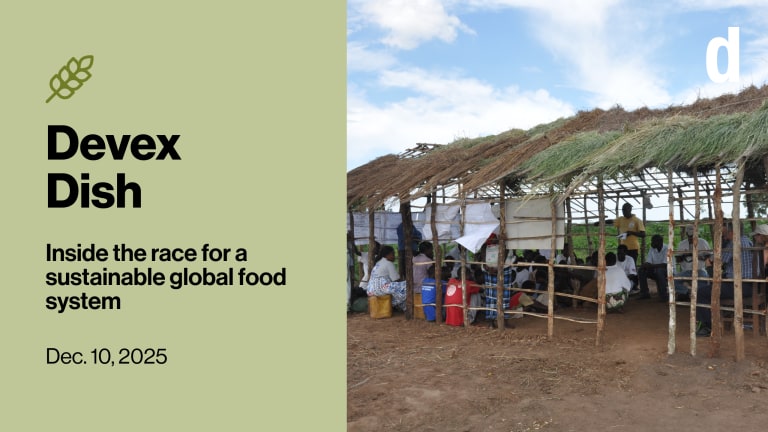
What began as heated rhetoric over trade between the United States and China has evolved into a potential trade war, with both countries proposing tit-for-tat trade barriers. Our analysis shows that such policies will not only harm the two feuding nations but also have fallout among other countries in the global marketplace.
The conflict captures the central issue outlined in chapter three of the International Food Policy Research Institute’s Global Food Policy Report: Growing anti-globalization sentiments and moves toward protectionism threaten to undermine the substantial benefits of global trade — particularly for food systems and nutrition — while doing nothing to address the problems associated with it.
International trade has proven to be a critical mechanism for growth and development — helping to build stronger value chains, mitigating conflict, and providing access to higher quality and quantities of goods and services. In recent decades, it has played a role in rapidly falling levels of undernourishment, better nutrition, and dietary diversity, and contributed to improving economic fortunes in developing countries.
See more related topics:
➤ What impact will trade agreements have on global food markets?
➤ UNCTAD chief on how the trade policy chaos is affecting developing countries
Over the past 40 years, the share of food calories crossing international borders worldwide rose from about 12 percent to more than 19 percent. During this period, developing countries played an increasing role in food trade as both exporters and importers. Ghana, for example, has increased the diversity of imported food products by 58 percent in the past 15 years.
How did these changes come about and what do they mean? The current open and inclusive international trade environment, fostered by the successful World Trade Organization Uruguay Round concluded in 1995, has contributed to improved global food security by addressing four key requirements: Availability, access, utilization, and stability of supply. In addition, trade in inputs, commodities, and ideas boost agricultural productivity and increase sustainability by facilitating the diffusion of technology and spurring innovation.
As populations have grown, food trade has helped meet increasing demand by relieving pressures on limited local natural resources: Countries with scarce arable land can obtain more diverse foods at lower prices, while farmers in countries with abundant land benefit by growing food for export, often seeing higher prices than in domestic markets. This not only improves food security but also facilitates year-long consumption of healthy seasonal products such as fruits and vegetables, as well as nontraditional food items, helping to diversify diets.
These achievements come at a cost, however. Open trade is often blamed as a source of many social problems, including rising inequality, environmental degradation, and the spread of unhealthy diets.
Current global trade systems remain distorted by unfair and inefficient policies in many countries, creating both winners and losers. Opportunities created by trade sometimes contribute to biodiversity loss and land degradation. Global trade and investment play a role in the rising consumption of unhealthy processed calorie-dense foods, and to related increases in health problems such as diabetes and heart disease.
Restricting trade in response, however, would primarily raise prices for consumers and limit market access for producers in the developing world, increasing pressures on food security.
Trade restrictions are indirect and frequently ineffective approaches to dealing with externality problems, such as land degradation and biodiversity loss. Instead of levying tariffs, political leaders and other decision makers must focus on implementing policies that target the root causes of the world’s social and environmental predicaments.
Tax and revenue transfer programs are a promising approach for tackling inequalities associated with free trade and open markets. WTO and other collaborative bodies are key players in mediating trade-related disputes and promoting better policy coordination.
Public goods such as education and research can also go a long way in addressing challenges related to diet and nutrition. They can empower consumers to make more informed dietary choices. Similarly, robust public-private conservation efforts can help preserve the environment and natural resources, as well as strengthening governance and policies on land management and biodiversity.
The world currently faces many serious challenges such as climate change and growing urban populations. Navigating this difficult landscape requires strong global institutions and governance based on cooperation.
China and the U.S. should take these lessons to heart. Rather than ramping up punitive trade restrictions, the two countries should be looking to reach an accommodation — and more broadly — to strengthen the rules and institutions that promote fair and open trade to their mutual benefit, and that of the other nations they trade with.
This approach will allow developing countries to share in the continued creation of wealth and reduction in poverty and malnutrition — and the world to make steady progress reaching a food-secure and sustainable future for all.









